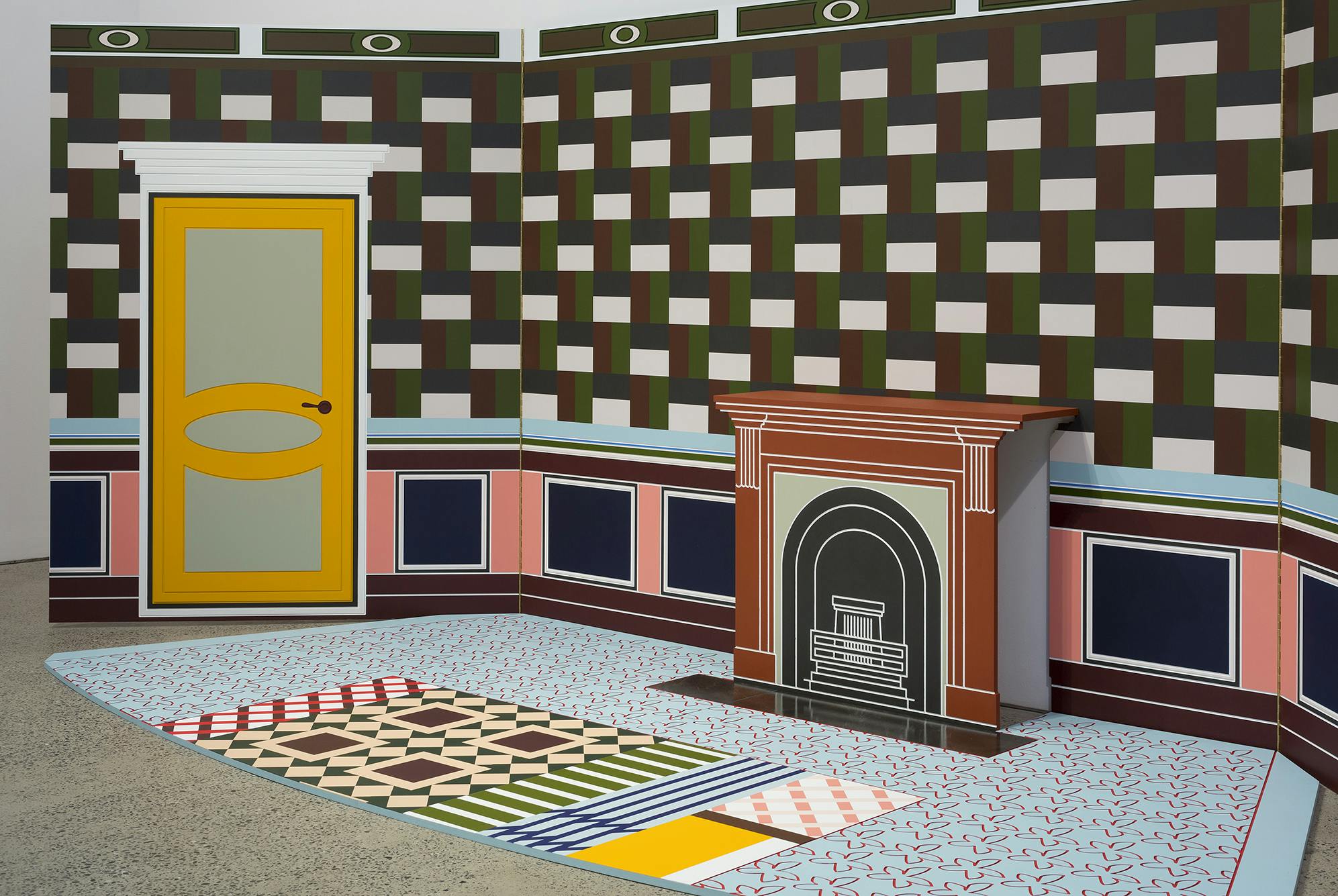Esther StewartHow to decorate a dump
Included with Museum Pass
Free entry
In recent years, Esther Stewart has made paintings and sculptures using geometric designs that, while deriving from modernist abstraction, also reference the ornamental trappings of architecture and domestic interiors such as awnings, balustrades, lattices and tiles; marble veneers; patterns on carpets, rugs or wood panelling. Home decorating has associations with the feminine and Stewart uses this domestic vernacular to personalise her abstract language. Often blurring boundaries between art, architecture and design, such works also toy with being functional, like her recent sculptures that double as display screens for paintings, and her patterned carpets that can be displayed hung on the wall.
In How to Decorate a Dump, Stewart presents a colourful, three-dimensional diorama, continuing her enquiry into the aesthetics and ethos of DIY home improvements. The exhibition’s title is borrowed from a 1983 book written by New York decorator Philip Almeida. Stewart’s interest in 1970s and 1980s DIY home-renovation manuals stems from a fascination with what she calls ‘the utopian idea of domesticity’, the desire to create a personalised haven, even when resources are limited and reality falls short of our dreams. Such concerns are often present in the titles of paintings like the doleful I Was Hoping for More 2016 or the more upbeat Tacky Can Be Chic 2016, the latter a catch-phrase borrowed from Almeida’s manual.
Idealised models for living embodied in floor-plans, flat-pack kit or display homes, even dolls houses, pop-up books and theatre sets also provide source material for Stewart’s work. Drawing on these ideas and uniting her sculptural and painting practices, How to Decorate a Dump astutely explores decorative vocabularies and the nostalgic fetishising of olden-day styles.
WATCH
Art Guide Australia recently visited Esther Stewart in her studio. Watch as she discusses her brightly geometric works, fondness for 70s and 80s DIY home manuals and the importance of a comfortable studio space.
VIEW THE ONLINE CATALOGUE
